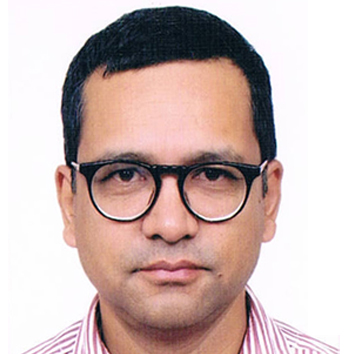Columns
Dissecting PhD sagas—II
TU is not serving the interests of doctoral students who want to become competent researchers.
Pratyoush Onta
About six years ago, Nepal’s oldest university, Tribhuvan University (TU), adopted a “PhD by coursework” route for its doctoral students in the Faculty of Humanities and Social Sciences (FoHSS). In so doing, it has, in theory, abandoned the “PhD by dissertation” route it had operated since its early days. As someone who did a PhD via the coursework route in an American university during the 1990s, I welcome this change. However, the execution of the new modality leaves a lot to be desired.
PhD by dissertation
TU was established in 1959 as a teaching and affiliation-providing university. However, a mere six years later, students had already started to enrol for PhDs via a simple registration procedure. Since there weren’t many TU faculty members with doctorate degrees then, supervisors designated by TU tended to be from universities outside Nepal. In later years, as more TU faculty earned PhDs, it became possible to assign supervisors from within.
In the early days, the students would mostly write their dissertations under the supervisors’ guidance, and there were few other requirements. Although there were many small changes in the “PhD by dissertation” modality,, it remained the doctoral route at TU for the next 50 years. At the level of design, we can explain this arrangement as one influenced by the British/Indian model of higher education. At the practical level, there were simply not enough faculty members at TU with the necessary credentials to run the doctoral programme in any other way.
PhD by coursework
The “PhD by coursework” modality requires that doctoral students take a bunch of courses as part of their initial training. The coursework package in a typical PhD programme in an American university varies from discipline to discipline. For example, first-year students in economics are expected to take year-long courses in microeconomics, macroeconomics and econometrics to master the fundamentals of the discipline. They then must pass the first-year exams in all three courses to continue in the programme. During the second year, these students are expected to take more courses in their chosen sub-specialities within economics and take more exams.
For doctoral students in history at the University of Pennsylvania in the early 1990s, the coursework requirements varied for students even within the same cohort. Every student had to take 20 courses (over five/six semesters) before becoming eligible for the PhD candidacy qualifying exams. All the students in my cohort at UPenn had to take the same year-long seminar whose focus shifted based on the expertise of the particular faculty member offering it. However, the rest of the coursework requirements varied based on the students’ proposed specialisations. Those focusing on American and European history—and there would be several students doing either—were required to take a few designated sequences of courses during the first year.
This format provided a relatively more fixed structure to their coursework requirements compared to those of us focusing on South Asia (just me in my cohort) or Africa. Since there were fewer of us, our coursework package was determined in consultation with our supervisors. Hence, apart from graduate history courses, I ended up taking courses offered by faculty members from the departments of Sociology, Anthropology and South Asian Regional Studies. I also took independent studies with several faculty members. For these, my professors and I agreed on different reading lists that I would have to cover and also the concomitant writing requirements.
The “PhD by coursework” modality practised in American universities serves three purposes. First, through a wide range of coursework, doctoral students are exposed to the breadth and depth of the discipline in which they are obtaining the doctorate. By passing various milestones on the way, the students demonstrate competence in these aspects of the discipline. Second, the coursework regime prepares the students to be able to do original research. For instance, theme-focused or region-focused courses allow history students to identify knowledge gaps that can be redressed through doctoral research. Third, such training prepares the students to teach a wide variety of courses once they graduate. You might be a historian of modern South Asia, but because of the coursework you have done, you might be able to teach a course on the “Modern History of the Global South” or “Comparative Histories of 20th-century Nationalisms.”
The logic of the “PhD by coursework” route at TU also largely aligns with these three purposes. However, its delivery is not that great. The first impediment comes from the fact that all PhD programmes are still controlled by the FoHSS dean’s office and not the disciplinary central departments. As a result, it cannot deliver the courses needed for wide disciplinary exposure. For that to happen, the doctoral programmes have to be anchored in the central departments.
Second, even if the dean’s office were to suddenly relinquish its control, only a few of the central departments are adequately staffed with competent faculty members to teach at this level. For sure, in contrast to the 1980s, most of the central departments are filled with PhDs. Some of them are on top of their subjects, both in terms of teaching and research, but many are simply not ready to teach courses at the doctoral level. They have not had to do it in the past and if challenged to do it tomorrow, they are simply not up to speed. And there are some central departments which simply don’t have the required full-time staff to run a full-fledged PhD by coursework scheme while also offering mostly taught four-semester MA programmes. The one-year coursework modules the dean’s office has required the central departments to run as part of its current MPhil-PhD coursework scheme already test their limits of delivery.
This state prevails at TU since the central departments cannot directly recruit needed faculty members. Such recruitment can only happen through the Sewa Ayog. Given the politics of bhagbanda spoils, this commission rarely works. Applicants who responded to the open call by the ayog three years ago are still waiting to take the written examination. It is another matter that such examinations are completely inappropriate to hire academics who can teach doctoral students.
Third, the delivery of such a scheme requires that department-based faculty colleagues work in overlapping teams to both deliver a set of well-thought-out courses and also manage timely milestone-marking evaluations of students. Given the bhagbanda spoils over the past two decades and the resulting presence of bad blood between “left” and “democratic” coalitions of faculty members, many departments are simply unable to realise the necessary teamwork. In some cases, personal egos based on seniority claims further accentuate their dysfunctionality.
Hence, the “PhD by coursework” at TU is not serving the interests of doctoral students who want to learn to become competent researchers through multiple years of hard work. Systematic interventions in faculty recruitment, including revisions in how the Sewa Ayog operates, are necessary if this route of doctoral training is not to become a farce.
The third instalment of this column will be published next fortnight.




 9.89°C Kathmandu
9.89°C Kathmandu















